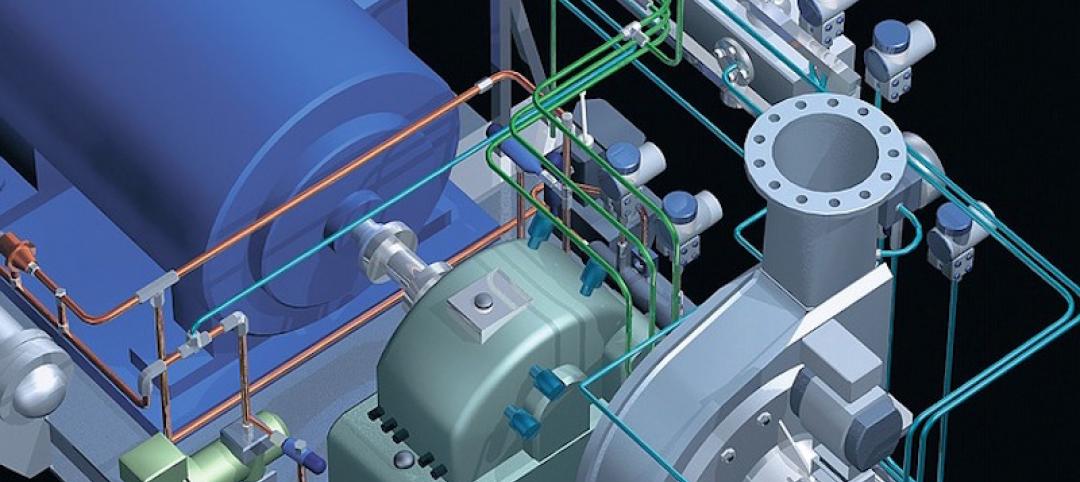The number of design projects, gross square footage, and net-zero energy projects has increased as part of the American Institute of Architects 2030 Commitment. Reaching carbon neutral buildings by the year 2030 is countered, however, by a small percentage of projects that met the 60% carbon reduction target for 2014.
It was determined in this report that nearly half of energy-modeled projects met or came close to meeting 2014 carbon reduction targets. Energy modeling allows architects to be more ambitious with energy-saving in their design projects.
“As an architect, the only way that you have options to make major changes to your design projects is by using energy modeling early in the design process,” said AIA 2030 Working Group member, Nathan Kipnis, FAIA. “Otherwise, your decisions are locked and limited to making equipment and materials choices in hopes of lowering a building’s energy consumption. Energy modeling gives you the best bang for your design buck.”
“Energy modeling has the potential to be a game changer that can help architects reach carbon reduction targets—but only if there is a move away from using it as a compliance confirmation tool,” said Kim E Shinn, PE, LEED Fellow. “Instead, the key is to start using it as a simulation tool completely interwoven into the design/test/refine cycles from the very beginning, and during the conceptual phase of a project. This helps ensure that architects stay on track to achieve their projects’ energy goals rather than realizing some course correction is needed well into design, perhaps after making some nearly irreversible decisions."
To increase the energy-efficient design literacy among the profession, AIA has partnered with Architecture 2030 to launch an educational program that addresses energy modeling throughout the online continuing education series. Participants can learn what comprises a living energy model that can ultimately lead to a more efficiently designed finished project.
Related Stories
| Jun 11, 2018
Accelerate Live! talk: The smart jobsite — Predictive visual data analytics for proactive project controls
In this 15-minute talk at BD+C’s Accelerate Live! conference (May 10, 2018, Chicago), a trio of experts in predictive visual data analytics presents how design-build giant Clayco has leveraged this technology to achieve production efficiency on several construction sites.
| Jun 11, 2018
Accelerate Live! talk: ‘AEC can has Blockchains?’
In this 15-minute talk at BD+C’s Accelerate Live! conference (May 10, 2018, Chicago), HOK’s Greg Schleusner explores how the AEC industry could adapt the best ideas from other industries (banking, manufacturing, tech) to modernize inefficient design and construction processes.
| May 30, 2018
Accelerate Live! talk: Seven technologies that restore glory to the master builder
In this 15-minute talk at BD+C’s Accelerate Live! conference (May 10, 2018, Chicago), AEC technophile Rohit Arora outlines emerging innovations that are poised to transform how we design and build structures in the near future.
| May 30, 2018
Accelerate Live! talk: Why the AEC industry must adapt to the Internet of Things boom
In this 15-minute talk at BD+C’s Accelerate Live! conference (May 10, 2018, Chicago), building systems expert Jeff Carpenter explores established and emerging IoT applications for commercial and institutional buildings, and offers a technology roadmap for navigating the IoT landscape.
Sponsored | | May 24, 2018
Water treatment facility renovation benefits from laser scanning technology
BIM and Information Technology | Apr 5, 2018
Tech Report 5.0: Why wait for 3D renderings?
With emerging real-time rendering tools, project teams can design and render on the fly, for enhanced collaboration and resource savings. But the software comes with a catch.
Building Technology | Mar 1, 2018
Small construction businesses will continue to lag other sectors in tech spending this year
A survey of 800 companies found tepid interest overall in investing in “big data.”
BD+C University Course | Jan 2, 2018
The art and science of rendering: Visualization that sells architecture [AIA course]
3D artist Ramy Hanna offers guidelines and tricks-of-the-trade to ensure that project artwork is a stunning depiction of the unbuilt space.
Giants 400 | Dec 14, 2017
Top 85 BIM construction firms
Turner Construction Co., Gilbane Building Co., and The Whiting-Turner Contracting Co. top BD+C’s ranking of the nation’s largest BIM contractors and CM firms, as reported in the 2017 Giants 300 Report.












